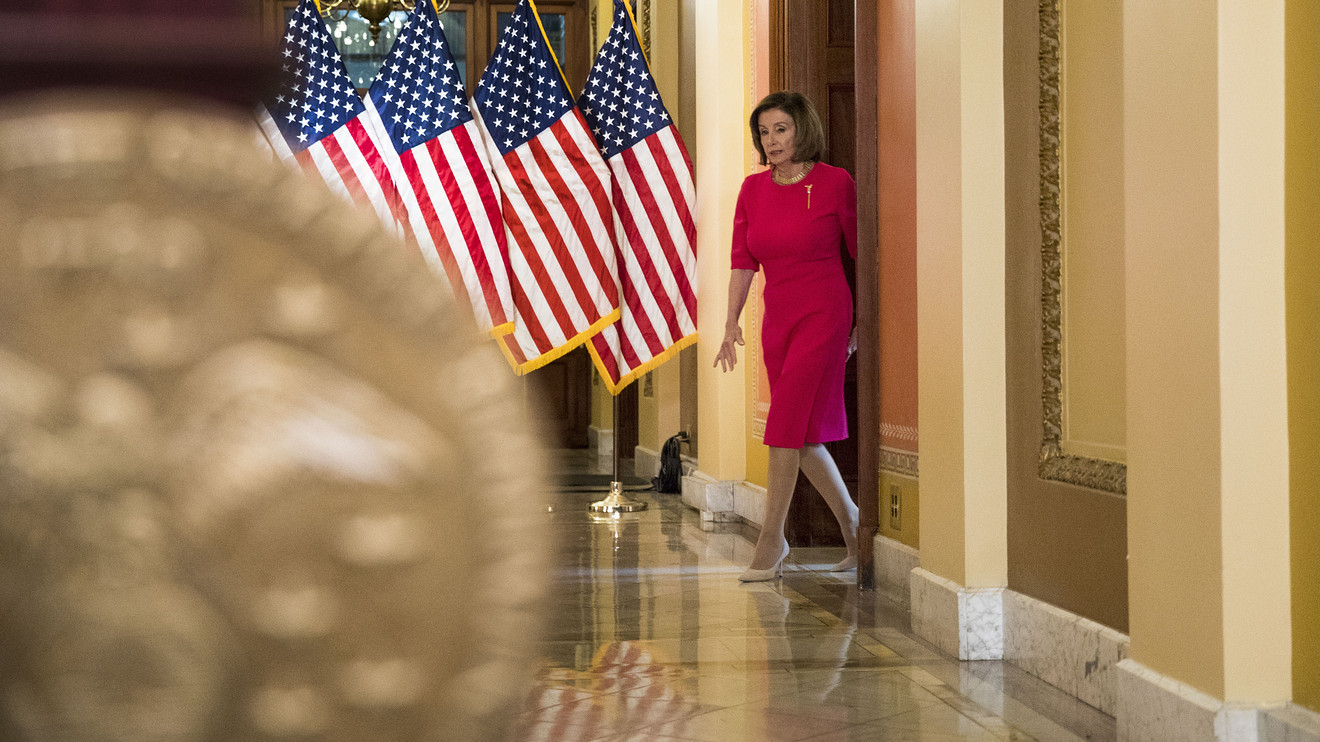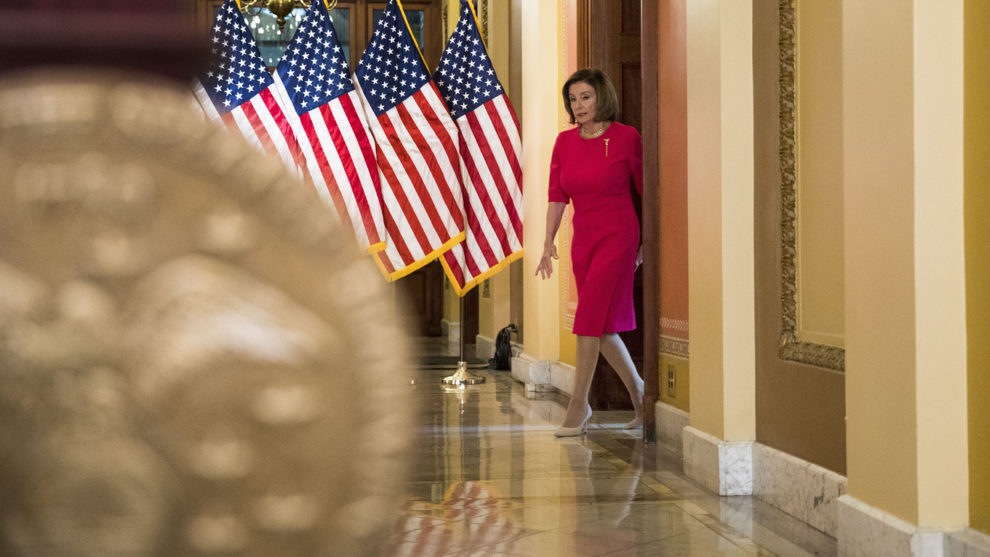
Top Democrats and Republicans on Tuesday were optimistic that a compromise coronavirus stimulus bill would be agreed to later in the day, as stocks soared on optimism over the emerging plan.
Senate Majority Leader Mitch McConnell, speaking at the opening of Tuesday’s Senate session, said he believes negotiators are on “the five-yard line.”
“Today we can make all of the Washington drama fade away,” the Kentucky Republican said. “We are very close.” Senate Minority Leader Chuck Schumer echoed McConnell’s optimism. “Right now, we’re on the two-yard line,” said the New York Democrat. He said a deal could be struck in hours.
Related: As talks drag on, Senate debate for stimulus to combat coronavirus turns snippy
House Speaker Nancy Pelosi said she, too, had seen reason to be upbeat. “There is real optimism we could get something done in the next few hours,” the California Democrat said on CNBC. After U.S. stock market closed, CNBC reported talks could drag into Wednesday.
The measure would include checks to Americans, expanded unemployment insurance and an unprecedented lending program to small and midsize businesses using the Federal Reserve’s emergency lending powers.
There was no doubt that everyone appreciates the gravity of the moment, Pelosi said, but she added that the problem had been “poison pills” in the Senate Republican bill that needed to be stripped out.
She said she was working to add more provisions that assist workers struggling as their employers shut down.
Pelosi said there was agreement on oversight of the $500 billion fund to assist companies hurt by the shutdown of the economy. “I think we’re on a good track,” Pelosi said.
Read more: Lobbyists have asked U.S. government for at least $2.3 trillion in aid
Treasury Secretary Steven Mnuchin echoed the sentiment of the top lawmakers.
“We’re looking forward to closing a bipartisan deal today,” Mnuchin told reporters at the U.S. Capitol on his way to a meeting at McConnell’s office.
President Donald Trump urged lawmakers to finish a deal on Tuesday. “The longer it takes, the harder it will be to start up our economy. Our workers will be hurt!” he said in a tweet.
Sen. Joe Manchin, a West Virginia Democrat who had been opposed to the bill unless its health-care provisions were beefed up, said his concerns had mostly been addressed. “They’re drafting and hope to have that done I’m told in the next two or three hours,” Manchin said.
A senior Trump administration official said the oversight provisions on the $500 billion fund would be similar to those in the 2008 Troubled Asset Relief Program.
“Similar to what we did in TARP where there was both the inspector general for the operation … and an oversight committee, an oversight board. You remember that’s how Elizabeth Warren made her bones,” the official said, speaking on condition of anonymity, referring to the Democratic senator from Massachusetts.
The official also said negotiators were looking at giving airlines a choice of taking either loans or grants for help, but not both. There would be restrictions on stock buybacks and CEO pay, the official said.
Manchin said he was happy with the final health-care provisions. “We fought for the things we thought were the most important, which is health-care workers. Hospitals have insolvency [protection]. That’s been up to the $100 billon,” Manchin said.
As for how much it will cost, Eric Ueland, the White House’s legislative-affairs director, told reporters, that it’s “likely that the package will end up at or a little above $2 trillion.”
A Senate procedural vote to move forward — two such votes had failed in the past two days — would likely instead be reduced to a unanimous consent agreement, Manchin said, though he still expected the final Senate vote to be a roll-call one.
Around 2 p.m. Eastern time on Tuesday, Republican Sen. James Lankford of Oklahoma was sounding somewhat impatient. “All I can say is I keep hearing we’re at the two-yard line,” Lankford said in a speech on the Senate floor. “But we never seem to get past the two-yard line. It’s always, ‘We’re close.’ Folks at home don’t need ‘we’re close.’ They need this done.”
Around 4:30 p.m. Eastern, Democratic Sen. Patrick Leahy of Vermont offered another sign that lawmakers were nearing a deal but still not finished. “I believe we’re very close to reaching a bipartisan agreement that’s going to provide direct and immediate relief to working people and families in our country,” Leahy said on the Senate floor.
U.S. stock benchmarks DJIA, +11.37% SPX, +9.38% closed sharply higher Tuesday, with the Dow industrials gaining more than 2,000 points. Market analysts said the Fed’s massive bond buying and emergency lending were beginning to improve market function and there was also hope a stimulus deal could be approved.
MarketWatch’s Victor Reklaitis contributed to this report.
div > iframe { width: 100% !important; min-width: 300px; max-width: 800px; } ]]>






